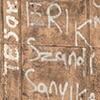A Magdolna negyedben élő roma szegény családok társas kapcsolatai és baráti viszonyai
DOI:
https://doi.org/10.18030/socio.hu.2020.3.31Kulcsszavak:
szegénység, városi szegénység, szegénység és etnicitás, lakóhelyi szegregáció, kirekesztettség, kapcsolathálózat, romaAbsztrakt
Az alábbi tanulmányban a budapesti VIII. kerületi Magdolna negyedben élő roma szegény családok társas kapcsolatait, baráti viszonyait és azok életszervezési funkcióit, hétköznapi életvezetésre gyakorolt hatásait vizsgálom. Arra kerestem a választ, hogy a Magdolna negyedben fellelhető mikroszegregátumoknak léteznek-e leírható kapcsolathatárai: van-e átjárás a mikroszegregátumok és a külvilág között földrajzi és társadalmi értelemben, illetve a megismert kapcsolathatárok mennyiben etnikus természetűek. Hasonlóképpen foglalkoztat, hogy a nők és férfiak kapcsolatszerkezetében tapasztalhatóak-e eltérések, a fővárosi tömbrehabilitációk kínálnak-e valós lehetőséget a társadalmi párbeszédre. A dolgozat „sorvezetőjét“ jelentő félig strukturált interjúkat a résztvevő megfigyelés, valamint a kapcsolati és fogyasztási naplók eszközeivel egészítettem ki. Eredményeim alapján a kirekesztettség okozta egymásrautaltság sajátos gazdasági együttműködési formákat, cserehálózatokat sző, amelyekben a rokonság mellett felértékelődnek a szomszédság és a jövedelemszerzési tevékenységek állandó résztvevői. Az erős kapcsolatok kiegészülnek a megélhetés és a háztartás fenntartásával összefüggő funkciókkal.






